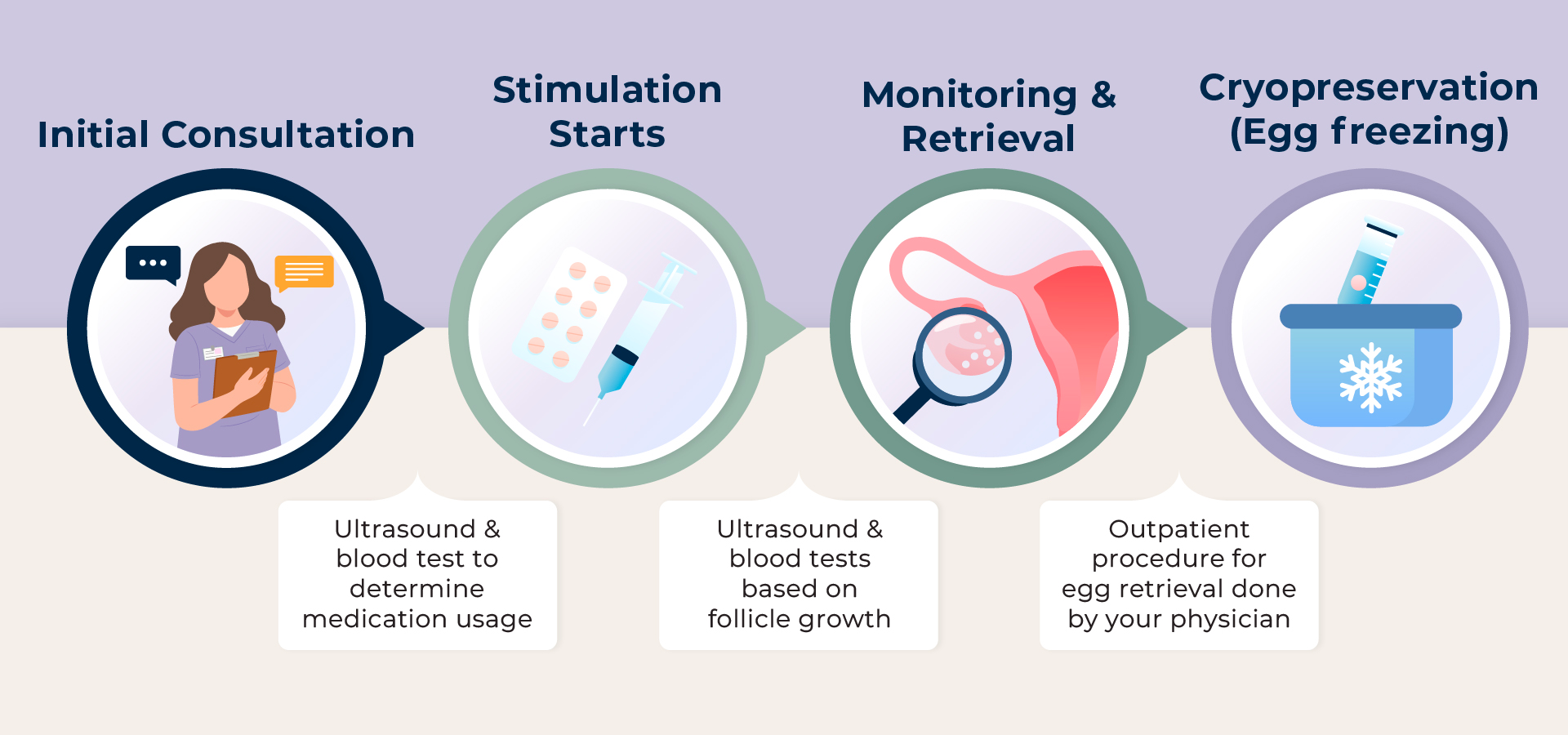Services
Egg Freezing
Egg Freezing
At Labryo Fertility, we understand that the right time to start a family is different for everyone. Our state-of-the-art egg freezing services in Newport Beach, California give women the option to preserve their fertility and plan parenthood on their own timeline. Using advanced laboratory techniques and experienced embryologists, we ensure your eggs are safely retrieved, frozen, and stored for future use. Whether you’re focusing on your career, haven’t found the right partner, or simply want peace of mind, egg freezing can empower you with more choices for the future.
Egg Freezing Process Timeline

1. Consultation
The process begins with an initial consultation with a fertility specialist.
2. Personalized Plan & Preparation
A customized treatment plan is developed based on the patient's unique circumstances and goals.
3. Stimulation Process
The goal of the stimulation process is to produce multiple mature eggs for retrieval.
4. Egg Retrieval
Egg retrieval is a minor surgical procedure performed under sedation or anesthesia.
How long can I freeze my eggs for?
Your eggs will be safely stored at our facility with around-the-clock professionals and a sterile environment. You can store it for however long you want, and we can assure you with our staff and technology, eggs that are stored for longer will not decrease in quality.
Are there any risks associated with egg cryopreservation?
The most common concern regarding egg cryopreservation is ovarian hyperstimulation syndrome or OHSS. Symptoms include bloating, dehydration, blood clots, pain, and vomiting. However, this only happens in about 5% of IVF and egg cryopreservation cycles. Like any procedure, they all come with a certain amount of risk and complications, but your doctor at Labryo will safely walk you through the process to minimize any chances of complications.
Is egg freezing for me?
Egg freezing is made to preserve a woman's rightful ability to conceive in the future. If you are over 35 years old, may receive cancer treatment shortly, or simply want to cherish your fertility in the future, you are free to make a consultation to determine if this is something you'd want right now. The process may seem daunting and overwhelming, but we're here to answer any questions you may have.
